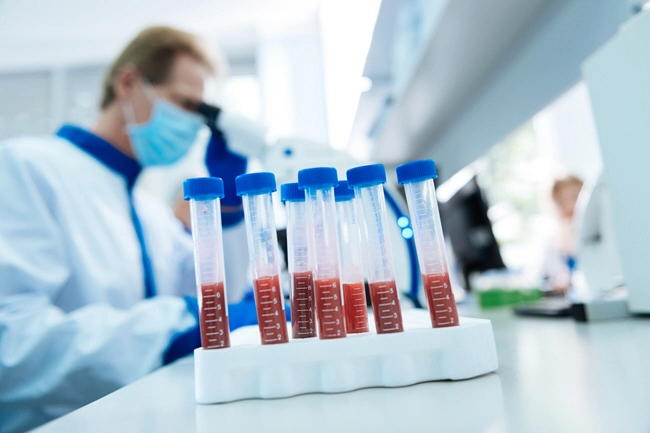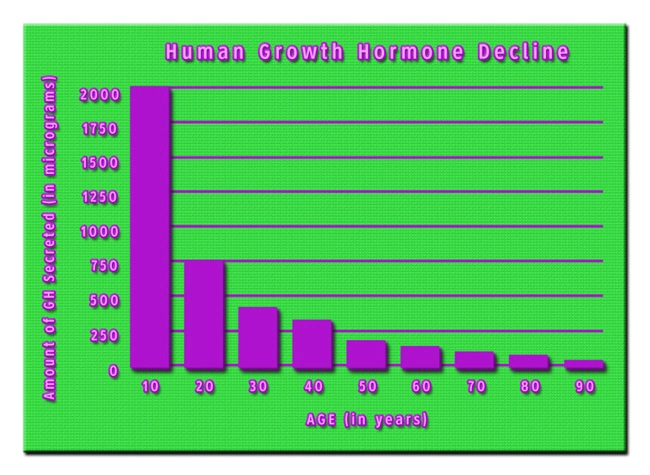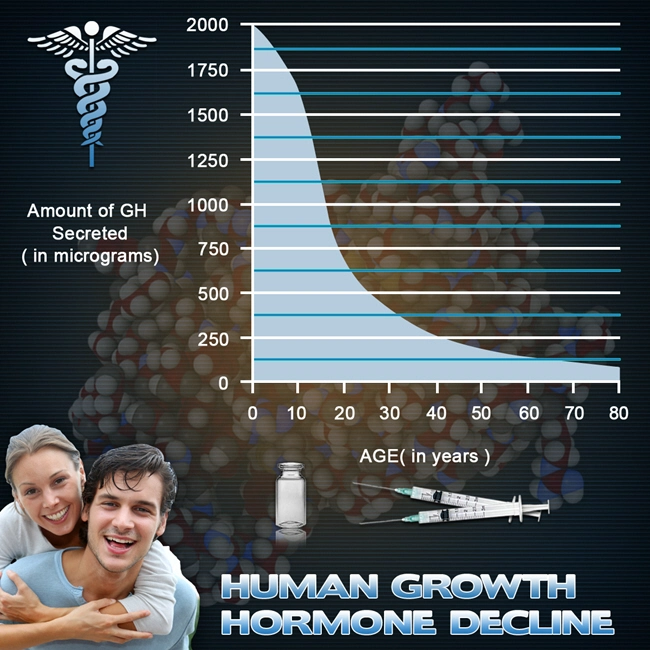
Video Link: https://vimeo.com/286235713
Video Download: Click Here To Download Video
Video Stream: Click Here To Stream Video
Video Link: https://vimeo.com/286236746
Video Download: Click Here To Download Video
Video Stream: Click Here To Stream Video
Human Growth Hormone (HGH) replacement therapy delivers a wealth of incredulous benefits: renewed vigor and stamina, strengthen muscles, relief from nagging joint aches and pains, better digestion, and attacks an all-too-common affliction: Depression.
There are very few medical conditions that are so misunderstood, so ignored, so made light of, and treated incorrectly, or not at all as depression.
To Ignore Depression is a Serious Mistake
Depression is serious...deadly serious...and is the top cause of disability in American adults. And it is not “all in your mind,” as if someone suffering from this illness is merely imagining it, or faking it to gain sympathy.
 But the fact is this: there is clear-cut biological evidence of depression that is observable in brain scans that show abnormal activity. The brain chemistry of depressed people appears to be out of balance.
But the fact is this: there is clear-cut biological evidence of depression that is observable in brain scans that show abnormal activity. The brain chemistry of depressed people appears to be out of balance.
In spite of efforts to increase awareness of this condition, many people, especially men, refuse to admit they are suffering from depression. Also, the symptoms are not as apparent as commonly thought. Many depression sufferers are not always sad, lethargic, or crying and turning inward in self-pity. Men are more prone to take the opposite approach. They may lash out with inappropriate, indiscriminate anger, be constantly irritable, with a “short-fuse” temper, or mask their feelings with alcohol, drugs, or other types of reckless behavior.
After all, men are supposed to “man-up,” and deal with depression by willpower and mental toughness alone. For some, this may work. But remember that depression is a medical illness, with genuine changes in the brain that need to be dealt with.
Before going any further, let's take a look at a few facts about depression:
- Depression can strike anyone. Scholar or athlete, introverts or extroverts, men or women. Anyone can develop depression. It is true that this disease strikes women twice as often as men. But women are far more likely to do something about it.
- Depression can come on gradually. Depression has been known to exist at a low level for years in some people and causes persistent problems. With others, it can come on quickly, and morph into a severe, disabling illness virtually overnight.
- Depression is not a result of your genetics. Of course, if your family has a history of depression, your odds of getting it are increased. But it doesn't have to go that way. If depression is a part of your family history, know the early symptoms of the illness and take preventive actions: reduce stress, work out more, talk with friends, or get professional help.
- Depressed people usually do not show any outward symptoms. They don't break into tears at the slightest thing or wear a perpetual frown. More often,
 they are emotionally “dead,” and suffer from increased feelings of uselessness, apathy, and hopelessness. The toll this takes on them, and their families and friends are unmeasurable.
they are emotionally “dead,” and suffer from increased feelings of uselessness, apathy, and hopelessness. The toll this takes on them, and their families and friends are unmeasurable.
- Depression is not an inevitable part of aging. As with so many afflictions of the elderly, depression is thought to be normal for them...as much as joint aches, muscle weakness and shrinkage, fatigue, insomnia, and loss of memory. But the truth is that most elderly people do not develop depression. It does not have to happen to anyone, and senior citizens need to adopt preventive measures, regardless of their age.
- Depression may not be diagnosed. Earlier it was mentioned that depression was misunderstood. And quite often, it is. Severe, sad occurrences in life like the death of a loved one, divorce, legal problems, being fired from a job or finding out that you have a severe illness are actual causes of sadness, for sure. But most people eventually adjust to their new reality. If the mourning and grief continue regularly, for considerable periods of time, then it very well may be depression. But this illness should not be blamed when grieving over severe disappointments.
How to Recognize Depression
Before you become concerned about possibly having depression, you need to be aware of the symptoms. According to the National Institute of Mental Health, symptoms of depression may include the following:
- Difficulty concentrating, remembering details, and making decisions
- Fatigue and decreased energy
- Feelings of guilt, worthlessness, and helplessness
- A sense of hopelessness and pessimism
- Insomnia, early-morning wakefulness, or excessive sleeping
- Irritability, restlessness
- Loss of interest in activities or hobbies once pleasurable, including sex
- Overeating or appetite loss
- Persistent aches and pains, headaches, cramps, or digestive problems that do not ease, even with treatment
- Persistent sad, anxious, or “empty” feelings
- Thoughts of suicide, suicide attempts
How to Deal With Depression
If you suspect that you are suffering from depression, or if you are diagnosed with this affliction, there are several treatment options for you to consider.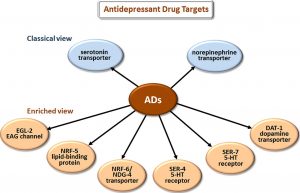
Many, if not most people automatically assume that medication is the answer...the so-called “Prozac Nation.” It is true that some antidepressants can be helpful. But this route is not a panacea. All prescription drugs come with side effects, and their effectiveness may change over time. This can lead to a constant changing of medications, which may be playing Russian Roulette with your health and sanity.
Also, if you are prescribed antidepressants, the goal is not to stay on them for the rest of your life. The following recommendations apply to current users of antidepressants as well as people who are looking at more natural means of combating this menacing disease:
- Get moving. The ancient Greeks had it right: The concept of “a sound mind in a sound body” is as valid today as it was 2,000 years ago. Many studies have shown that regular exercise can improve symptoms of depression, and work as well as antidepressant medication for people with mild to moderate depression. Just remember to focus on all areas of fitness: strength, endurance, flexibility, and balance. It is beyond the scope of this article to go deeply into the specifics of these approaches. But the information is widely available through books, magazines, videos, YouTube, personal trainers, and other Internet web pages devoted to fitness. From weight training, body weight exercises, and kettlebells to running techniques, Yoga, Tai Chi, Chi Kung and balance work with stability balls, the knowledge and techniques are available...and much of it is free. Exercise causes the release of chemicals called endorphins, which unleash a positive feeling in the body. So get going.
- Make some nutritional changes. Many depressed people are more likely to devour “junk foods” loaded with fat and sugar, in a futile attempt to elevate their mood. But long-term, that approach is disastrous. Correct, clean eating can work wonders on your body's chemistry. In fact, some foods have been connected to mood problems, especially gluten. It is worth eliminating certain foods and then noticing the effects. And please banish the word “diet” from your vocabulary. Diet implies sacrifice, eating bland, tasteless fare, and self-deprivation. Nutritious eating is anything but that. Another ancient
 cliché is “you are what you eat,” and that's so true. You wouldn't put a mixture of gasoline, water, and sand into your car, right? So why put garbage into your body? The car is replaceable...your body is not. It just doesn't make sense to not pay attention to how you fuel your body. Again, as with exercise and fitness, there are plenty of recipes available in books, television, and online. Forget fad diets, and stick to the basics of proper nutrition. This is a vital weapon in battling depression. Please don't neglect it.
cliché is “you are what you eat,” and that's so true. You wouldn't put a mixture of gasoline, water, and sand into your car, right? So why put garbage into your body? The car is replaceable...your body is not. It just doesn't make sense to not pay attention to how you fuel your body. Again, as with exercise and fitness, there are plenty of recipes available in books, television, and online. Forget fad diets, and stick to the basics of proper nutrition. This is a vital weapon in battling depression. Please don't neglect it.
- Get enough sleep. This is another no-brainer. More and more studies are confirming that a lack of sleep contributes to a wide array of horrors: heart disease, obesity, decreased mental ability, and memory problems, a reduction in growth hormone release, and too many other debilitating conditions to list. Make getting a good night's sleep a high priority, and watch your mood improve.
- Combat stress. This goes a long with everything mentioned so far. There is a definite, proven link between stress and depression. Having some stress in our lives is entirely reasonable. In fact, if we didn't have any stress, we would create our own. The key is to control it, not let it control you. In addition to the ideas mentioned above, consider adding meditation to the mix. You don't need to sit in the lotus position and stare at the wall for hours and hours a day. Start small, with as little as five minutes of sitting still, and try to think about nothing...just focus on your breathing. As with exercise and diet, there are many ways to learn meditation techniques. Perhaps there is a local martial arts facility that offers meditation classes, where you can learn from an experienced teacher. Or you could do what has been recommended above: books, videos, YouTube, and other websites. It is also essential to declutter both your mind and your immediate environment. This is important because chronic stress can trigger the release of cortisol, the so-called “stress hormone,” which results in reduced levels of serotonin and other neurotransmitters in the brain like dopamine, which has been proven to have a direct link to depression.
- Talk about what's bothering you. Sometimes, just talking to a sympathetic listener can work wonders. Someone once mentioned that “Words build bridges into uncharted territories,” and that's so true. Remember, you have many of the answers you seek already inside you, at some level. Talking it
 over can spark ideas, both from you and whoever is listening: a family member, a friend, or mental health professional. This can also help you think in a more positive manner, which by itself can work wonders in the struggle with depression. A good, healthy discussion can also give you hope. Hopelessness is a symptom of depression, but positive thinking and a re-framing of your problems can pay off in spades. Friendly ears are available, and anxious to help. Seek them out.
over can spark ideas, both from you and whoever is listening: a family member, a friend, or mental health professional. This can also help you think in a more positive manner, which by itself can work wonders in the struggle with depression. A good, healthy discussion can also give you hope. Hopelessness is a symptom of depression, but positive thinking and a re-framing of your problems can pay off in spades. Friendly ears are available, and anxious to help. Seek them out. - Give acupuncture a try. This ancient Chinese healing technique has been around for thousands of years and has worked well in healing many afflictions, including depression.
Don't Forget the Role of Natural, Nutritional Supplements
In their mad scramble for an “instant fix,” many people suffering from depression shun the idea of taking a more natural approach. Granted, doing things drug-free takes longer. But many times supplements can be as effective as antidepressant prescriptions, and they come without side effects. Here is a list and a short description of supplements that have been proven effective in some cases of depression:
- Fish oil. Fish oil is loaded with omega-3 fatty acids, which is a significant building block in brain chemistry. When there is a shortage of Omega-3's, the brain's nerve signals do not communicate correctly. The result? Depression and anxiety.
- B-Complex Vitamins. B vitamins make the brain conserve the amino acid tryptophan, which then converts into serotonin, one of the feel-good chemicals in the mind.
- 5-HTP. This substance also converts into serotonin.
- Theanine. Theanine causes the release of gamma-aminobutyric acid or GABA as it is more commonly known. GABA acts as a calming effect in the brain by awakening the calming neurotransmitters. GABA is also quickly absorbed.
- Vitamin D. This vitamin is not called “the sunshine vitamin” for no reason. In addition to all of the other health benefits it delivers, it also lessens
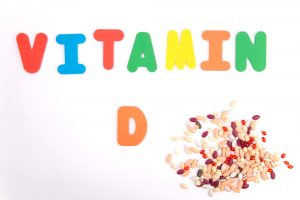 depression, possibly by improving neurotransmitter function.
depression, possibly by improving neurotransmitter function.
- S-adenosylmethionine (SAMe). Like any of these other substances, low levels of SAMe have been linked to depression. Also like the others, it boosts the performance of neurotransmitters, including dopamine and serotonin.
- St. John's Wort. This herb is most commonly thought of as the “go-to” herb when depression is mentioned. It has long been used in Europe for the treatment of mood disorders. One caveat: it can interact with other drugs, so be sure to clear it with your physician to make sure it is safe for you.
- Saffron. Saffron has outperformed placebos in a few trials and may help with milder cases of depression.
If you have tried some or all of these approaches and still feel that depression has you in its death grip, then seek professional help.
Also, here is another thing to consider. At some levels, there is an element of anxiety and even fear at the heart of depression. Here are a few quotes on conquering fear and controlling your mind from the famous boxing trainer and master psychologist Cus D'Amato to a young boxer who was at the time an amateur who lacked self-confidence, but who would eventually become the world heavyweight champion and a household name: Mike Tyson
"Your mind is not your friend, Mike… you have to fight with your mind, control it, put it in its place. You need to control your emotions.
Fatigue in the ring is 90% psychological. It’s just the excuse of a man who wants to quit. The night before a fight, you won’t sleep. Don’t worry; the other guy  didn’t either. You’ll go to the weigh-in, he’ll look much bigger than you and calmer, like ice, but he’s burning up with fear inside. Your imagination is going to credit him with abilities he doesn't have. Remember, motion relieves tension. The moment the bell rings, and you come in contact with each other, suddenly your opponent seems like everybody else because now your imagination has dissipated. The fight itself is the only reality that matters. You have to learn to impose your will and take control over that reality."
didn’t either. You’ll go to the weigh-in, he’ll look much bigger than you and calmer, like ice, but he’s burning up with fear inside. Your imagination is going to credit him with abilities he doesn't have. Remember, motion relieves tension. The moment the bell rings, and you come in contact with each other, suddenly your opponent seems like everybody else because now your imagination has dissipated. The fight itself is the only reality that matters. You have to learn to impose your will and take control over that reality."
This advice is not merely about boxing. No matter what the obstacle, it can seem far more extensive and more intimidating than it is, if you just sit back, do nothing, and let your imagination run wild. Remember, depression is treatable! Take action and remember that motion relieves tension by putting these recommendations to work, and defeat the monster called depression.
And growth hormone replacement is a crucial tool in the battle against depression. The ancient Greeks repeatedly stated that the mind and body are interconnected, and one affects the other. Sadly, this sage wisdom is often overlooked today as we routinely neglect our health.
But when we experience the transformative powers of growth hormone restoration our moods will dramatically take a turn for the better. Contact us for a FREE, no-obligation discussion of what growth hormone therapy can do for you.
References
http://www.thebetterhealthstore.com/newsletter/012910_top-5-anti-depression_04.html
http://www.drweil.com/drw/u/ART00696/depression-treatment
http://www.doctoroz.com/videos/best-natural-anti-depressants
http://www.foodforthebrain.org/nutrition-solutions/depression/about-depression.aspx
http://www.nimh.nih.gov/index.shtml
http://www.webmd.com/depression/features/stress-depression
http://www.tysontalk.com/Media/tysonian_quotes_idea/CusQuotes.html
Contact Us Today For A Free Consultation
Dear Patient,
Once you have completing the above contact form, for security purposes and confirmation, please confirm your information by calling us.
Please call now: 1-800-380-5339.
Welcoming You To Our Clinic, Professor Tom Henderson.

- A Major Breakthrough in Anti-Aging Science is now Reality! [Last Updated On: October 12th, 2024] [Originally Added On: September 19th, 2020]
- All the Different Brands of Human Growth Hormone -- Guide [Last Updated On: February 10th, 2025] [Originally Added On: September 21st, 2020]
- Weight Loss Through HGH [Last Updated On: February 10th, 2025] [Originally Added On: September 24th, 2020]
- Did You Know: Sarcopenia is Increasing Among Senior Citizens at a Blistering Pace? [Last Updated On: February 8th, 2025] [Originally Added On: October 5th, 2020]
- Growth Hormone and Sleep [Last Updated On: February 9th, 2025] [Originally Added On: October 8th, 2020]
- Hormone Replacement Therapy Program Protocol Diary [Last Updated On: October 11th, 2024] [Originally Added On: October 9th, 2020]
- The Curse of Non-Alcoholic Fatty Liver Disease [Last Updated On: February 6th, 2025] [Originally Added On: October 11th, 2020]
- How Can I Get More HGH (Human Growth Hormone) Naturally? [Last Updated On: July 27th, 2024] [Originally Added On: August 16th, 2021]
- Cholesterol and Growth Hormone...the Truth May Surprise You! [Last Updated On: February 5th, 2025] [Originally Added On: October 7th, 2021]
- Growth Hormone FAQ's [Last Updated On: February 4th, 2025] [Originally Added On: October 8th, 2021]
- Growth Hormone: A powerful tool to battle Erectile Dysfunction [Last Updated On: February 6th, 2025] [Originally Added On: October 8th, 2021]
- How to buy Growth Hormone [Last Updated On: February 7th, 2025] [Originally Added On: October 8th, 2021]
- Testosterone Battles Diabetes [Last Updated On: February 3rd, 2025] [Originally Added On: October 8th, 2021]
- Growth Hormone protects your Adrenal Glands [Last Updated On: February 4th, 2025] [Originally Added On: October 8th, 2021]
- Buy Growth Hormone! [Last Updated On: February 9th, 2025] [Originally Added On: October 8th, 2021]
- Growth Hormone reduces Heartburn [Last Updated On: February 5th, 2025] [Originally Added On: October 8th, 2021]
- The Link Between Diabetes and Growth Hormone [Last Updated On: February 7th, 2025] [Originally Added On: October 8th, 2021]
- Growth Hormone and Nutraceuticals [Last Updated On: February 8th, 2025] [Originally Added On: October 8th, 2021]
- Growth Hormone and the Pituitary Gland [Last Updated On: February 1st, 2025] [Originally Added On: October 11th, 2021]
- Growth Hormone and Calorie Restriction. [Last Updated On: February 2nd, 2025] [Originally Added On: October 11th, 2021]
- Growth Hormone and Healthy Living Can Add Years to Your Life! [Last Updated On: February 2nd, 2025] [Originally Added On: October 11th, 2021]
- Welcome to Growth Hormone and Testosterone Therapy [Last Updated On: December 27th, 2024] [Originally Added On: October 11th, 2021]
- Human Growth Hormone Medical Guide [Last Updated On: June 9th, 2024] [Originally Added On: October 25th, 2021]
- HGH Female Blood Panel [Last Updated On: July 9th, 2022] [Originally Added On: October 28th, 2021]
